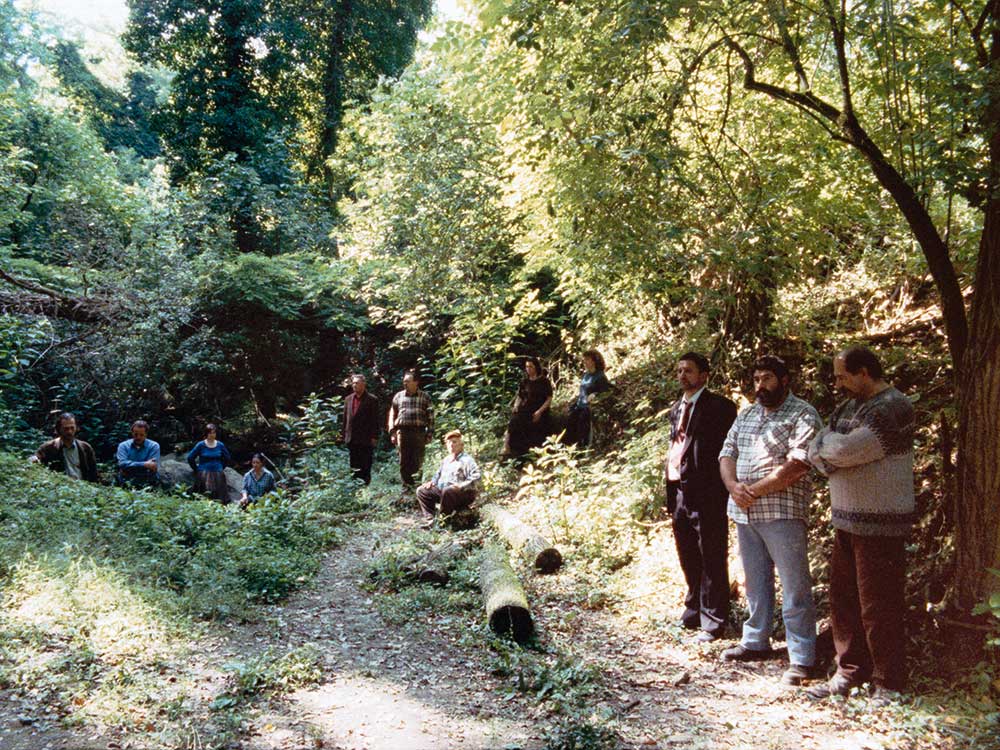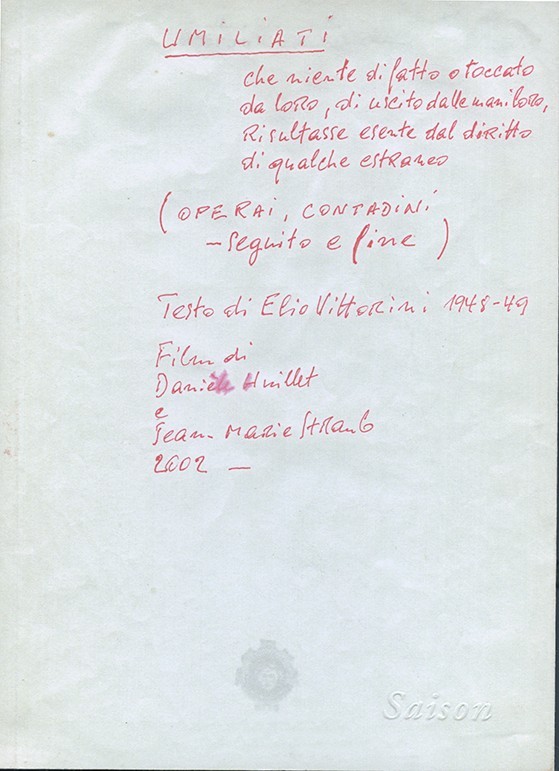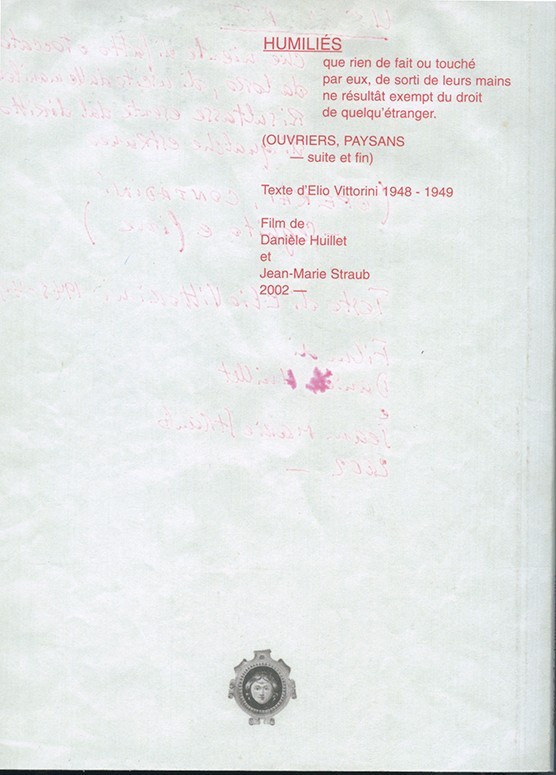
Excerpts from the novel Donna di Messina (1949 and 1964, 1967) by Elio Vittorini (1908-1966). The owners' representative comes to question the community. They don't have a property deed. They've cleared the wasteland of bombs and mines, but it's time to leave now or become the owners' sharecroppers. For the heroes invented by Vittorini and filmed by Jean-Marie Straub and Danièle Huillet, "humiliation" means being chased out of their landscape and their work, being put out of work because their performance is inadequate. Sequel to Workers / Peasants, taken from the same novel. Whereas Workers / Peasants tells the story of the community's beginnings, its ascendancy and the music of Bach. Umiliati sets the scene for its end, to the music of Varèse.
EN
“With respect to Umiliati (The Humiliated, 2002), Danièle Huillet said that “the history of nature is not entirely the history of man. In spite of all the vandalism, it runs in parallel.” In their filmic dispositifs, the filmmakers make this discordance palpable, which appears in a more or less intense manner, depending on the film. Thus, the ruins of Othon, Antigone or The Death of Empedocles in which the spectator witnesses the return of nature among human constructions, we pass to the inscription of human beings in a space that is alien to them (perhaps even strangely unsettling or uncanny). The ruins that these three films presented were indices of regression and decline, while in Workers, Peasants and The Humiliated, untransformed nature (or nature that has totally absorbed the ruins) is the promise of a possible “resurrection”. The cinematic presentation of “death at work” must make the course of parallel histories be felt, or rather the intertwining of histories which from time to time go against the grain of each other. It must be felt through its organisation that there is not a single meaning assimilated in a constant progress.”
Thomas Voltzenlogel1
- 1Thomas Voltzenlogel, “The Dialectic of Cinema, Theatre and Life: Danièle Huillet and Jean-Marie Straub,” Senses of Cinema, October 2019.



